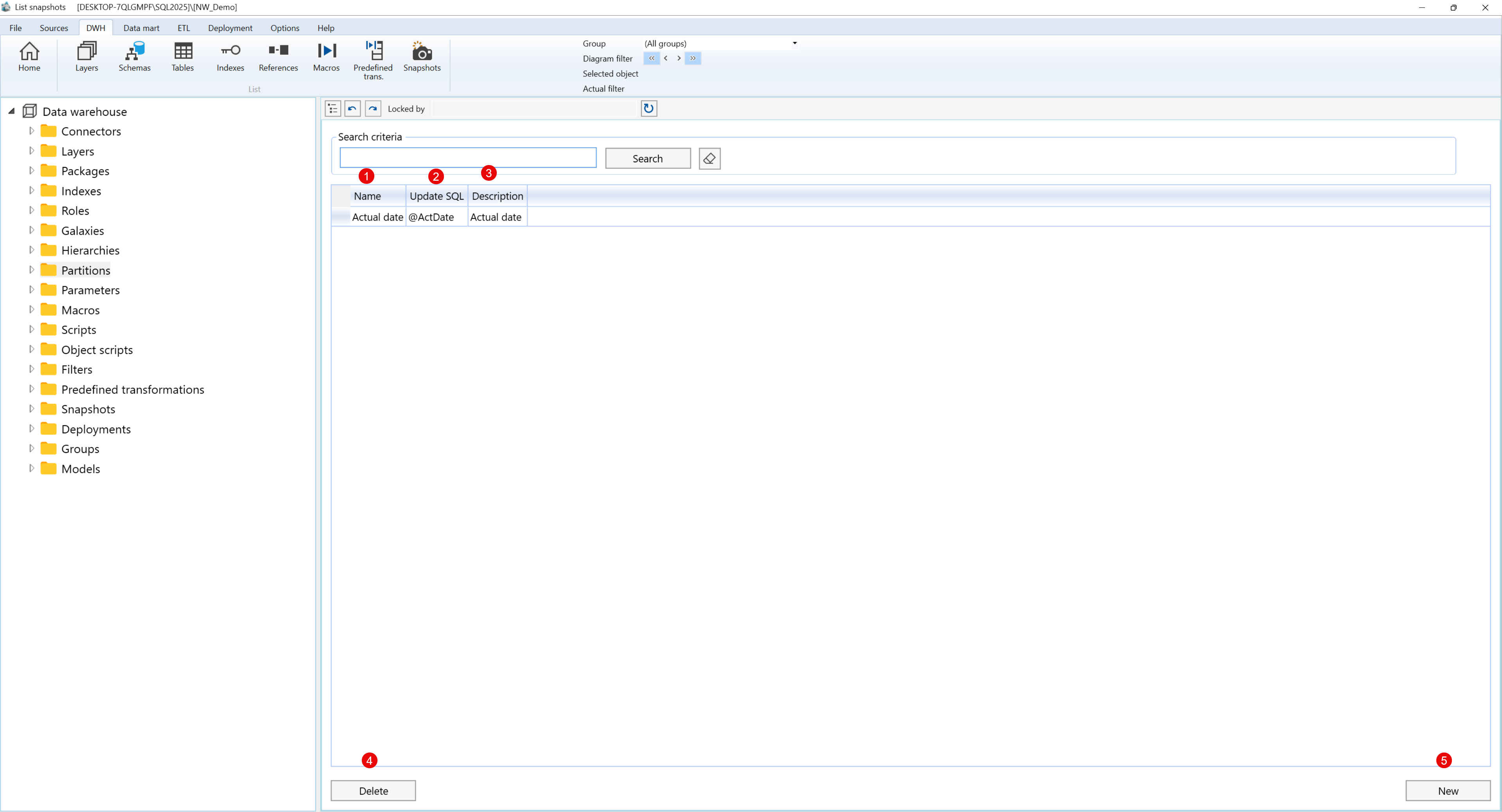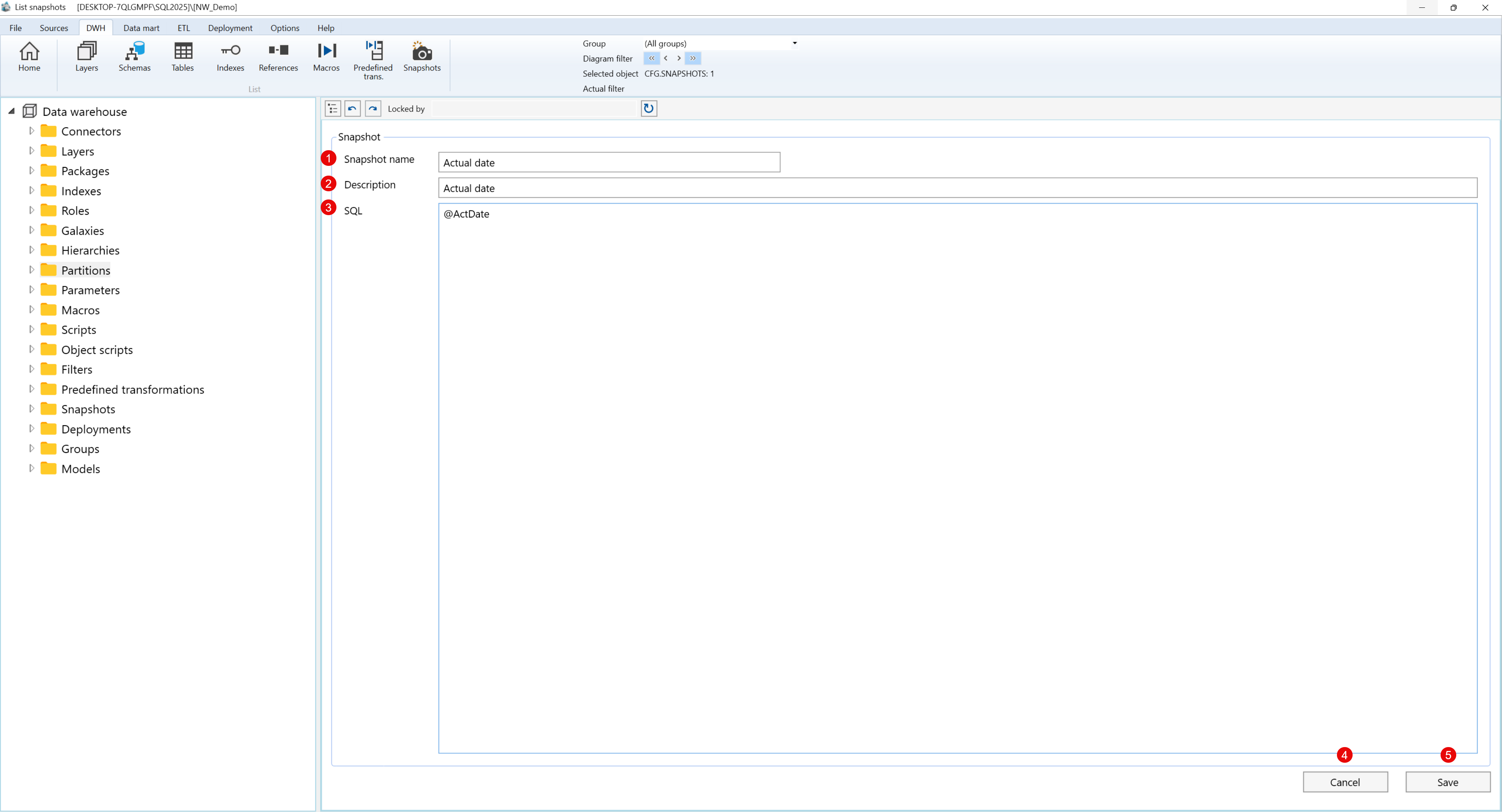Snapshots
The Snapshots feature in AnalyticsCreator defines reusable SQL expressions that return a scalar value, typically used for versioning, auditing, or capturing runtime metadata such as dates or timestamps. Snapshot values can be referenced across the project in generated SQL scripts.
Function
A snapshot represents a named SQL expression that returns a single value. It is commonly used to define runtime parameters such as the current processing date, which can be referenced in transformations, macros, or scripts. Snapshot expressions are evaluated during generation.
Access
Snapshots are managed under the DWH > Snapshots module. Each snapshot includes a name, optional description, and a SQL expression that returns the snapshot value.
Properties: Snapshots List
| ID | Property | Description |
|---|---|---|
| 1 | Name | Unique identifier used to reference the snapshot in expressions |
| 2 | Update SQL | The SQL expression that returns a single scalar value (e.g., current date or timestamp) |
| 3 | Description | Optional explanation of what the snapshot represents |
| 4 | Delete | Removes the selected snapshot definition |
| 5 | New | Creates a new snapshot entry in the list |
Properties: Snapshots Edit
| ID | Property | Description |
|---|---|---|
| 1 | Snapshot Name | Name of the snapshot; must be unique across the project |
| 2 | Description | Describes the purpose or meaning of the snapshot |
| 3 | SQL | T-SQL expression returning a single value (e.g., @ActDate) |
| 4 | Cancel | Closes the editor without saving changes |
| 5 | Save | Saves the snapshot definition and its SQL logic |
Screen Overview
The image below shows the List Snapshots interface with columns labeled for easy identification.

The image below shows the Snapshot Edit screen used for creating or modifying snapshot definitions.

Behavior
- Snapshots return a single scalar value and are evaluated during generation
- Snapshot values can be referenced using the
@SnapshotNamesyntax in SQL scripts and macros - Snapshots support only expressions that return a single result; multi-row queries are not supported
- All snapshot expressions must be valid T-SQL
Notes
- Snapshots are useful for centralizing logic such as execution date or process ID
- They can be reused across multiple transformations and macros for consistency
- Snapshot values are resolved at generation time and substituted into the code